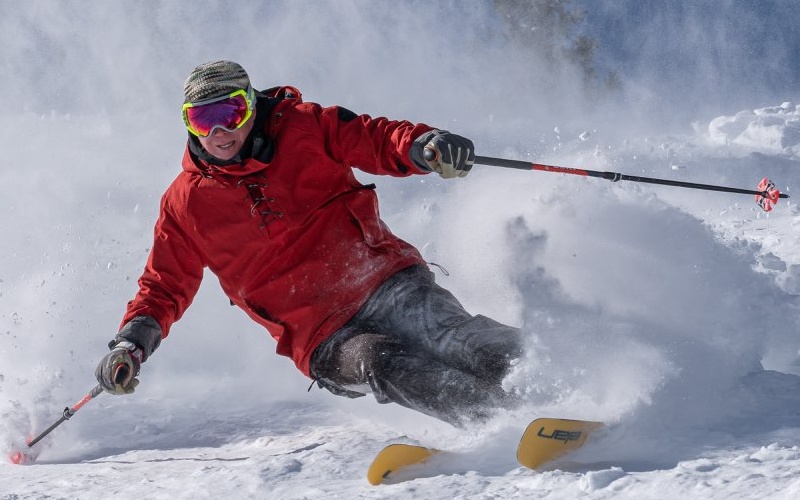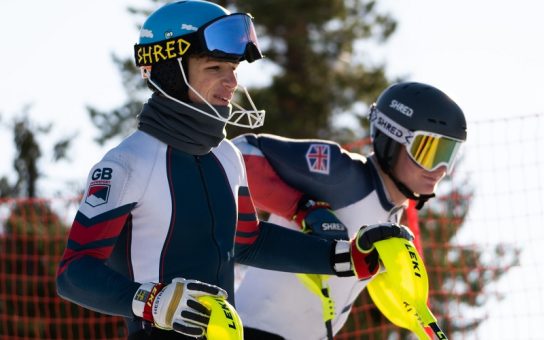Skier and actor Dan Egan visited Kensington this week to promote his new book 30 Years in a White Haze.
Egan has featured in 12 Warren Miller films, produced his own award-winning films that began in his parents’ attic, written three books, and skied with his brother John along geopolitical landmarks of world history, redefining extreme sport and the mindset of skiing.
In 1989, he jumped off the Berlin Wall, in 1991 he skied with the Kurds on the Persian Gulf War, on the border of Iraq and Turkey and in 1992 he skied in Yugoslavia a week before the war started.
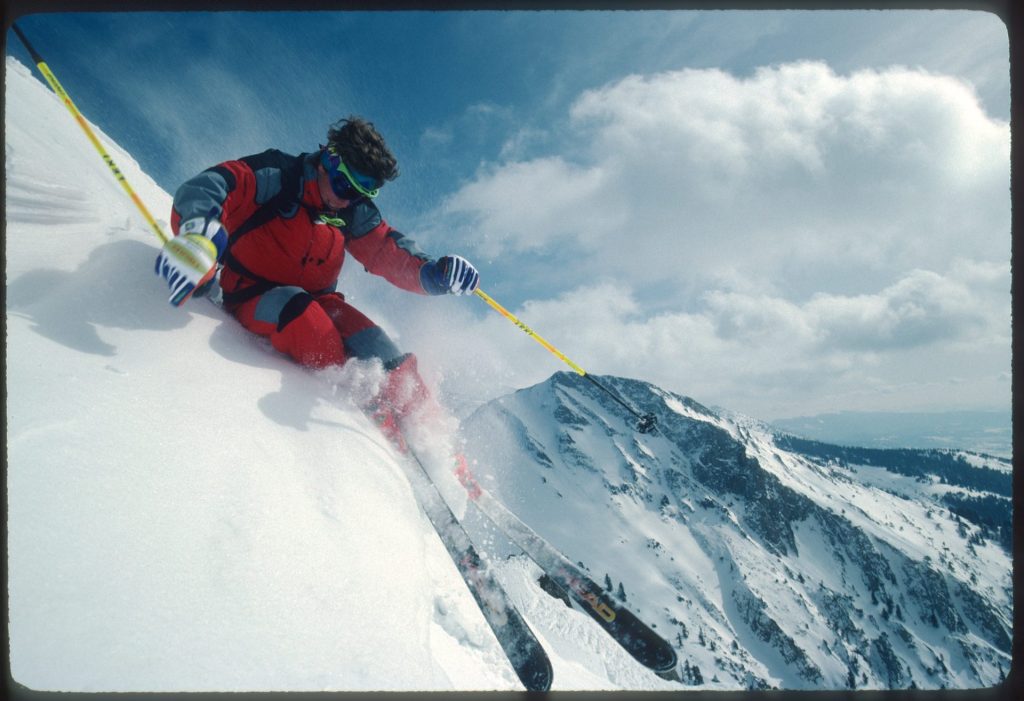
Egan said: “That experience of chasing mountain cultures, particularly in Turkey with the Kurds, changed my point of view.
“During the first Persian Gulf War finding out the Kurds loved to ski was fascinating and just opened up my whole world.”
Egan described Miller and John as huge influences on his life.
Miller was the ‘rocket-fuel for his life’, and Egan lives by Miller’s mantra that ‘nobody is stopping you but you’.
He also said that John had always been a legendary figure and best friend to him.
What really changed Egan’s mindset towards skiing was the 1990 tragedy that happened on Mount Elbrus where Degree 7 sponsored Egan and a group to do a celebration of renowned extreme skier Patrick Vallençant’s life after he died.
A storm blew in, trapping 50 people, 11 of whom died.
Egan was lost in the storm for 38 hours where he had a white light experience before a six foot four Russian saved his life.
The next day, they did three rescue missions and saved 14 people.
It has taken Egan 30 years to process this trauma, and he wanted it to be in his new book 30 Years in a White Haze, not as the end but as the beginning, because he started his adult life when he came off that mountain and it changed his whole approach to skiing and his life.
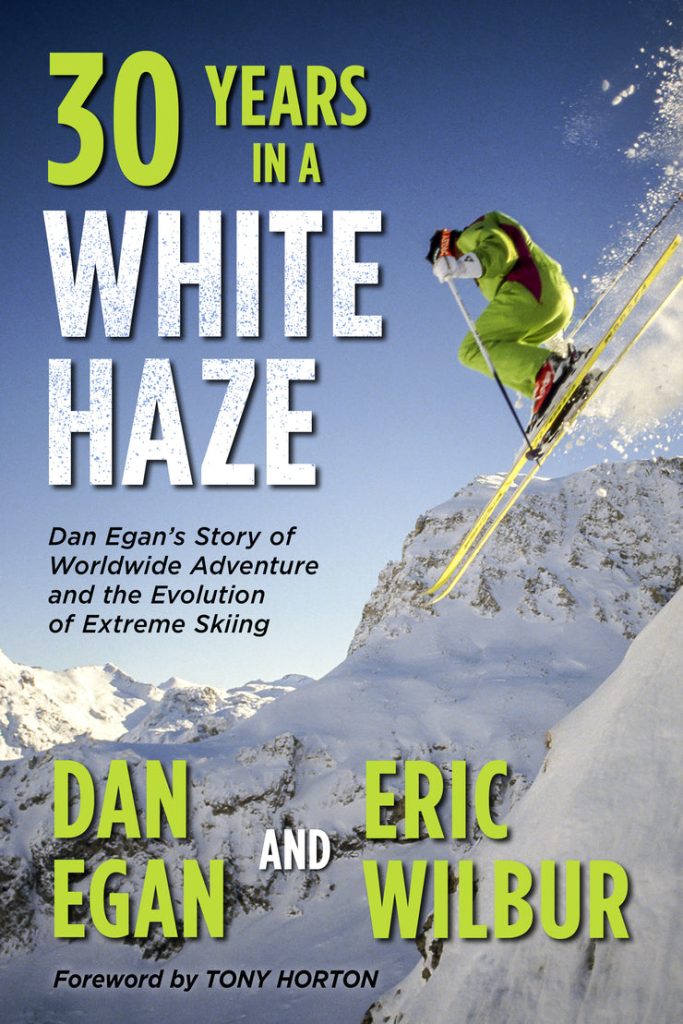
For Egan, the most cherished aspect of his career is being able to share with others, and so when writing his books he focuses on how people can get to know him through his book.
He explained: “The books are the most personal.
“I think if I can change the way people see the mountain, I can change the way they see the world and their lives.”
On Mount Elbrus, Dan discovered the importance of the ‘flow’ mindset, which promotes the observing mind over the critical mind, encouraging people to focus on the ‘now’ and the good decisions they make, instead of limiting themselves with anxiety.
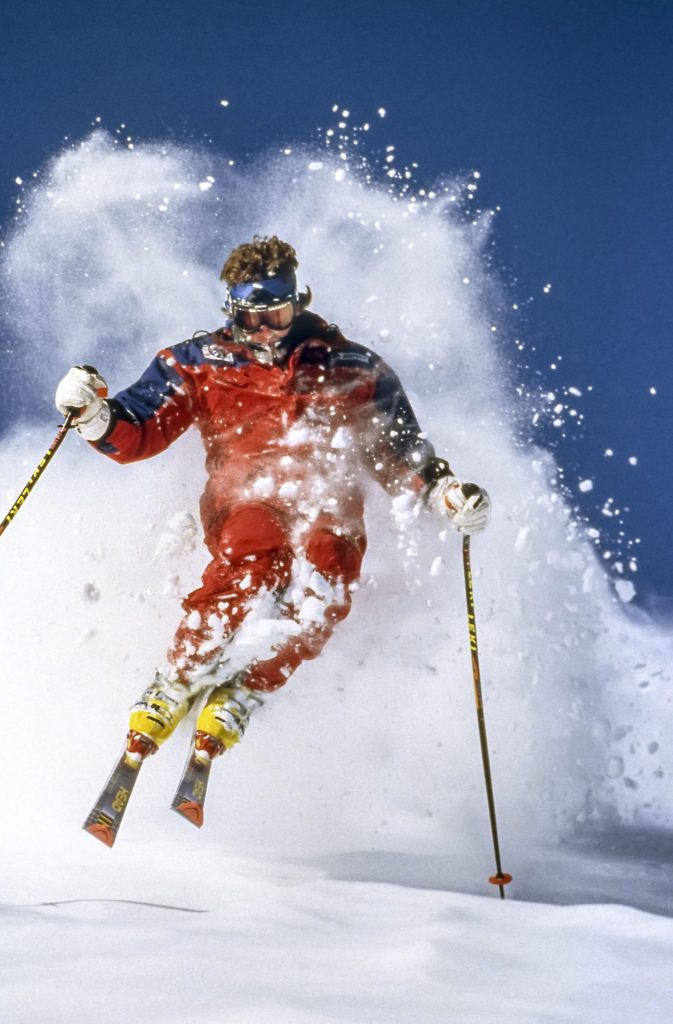
He explained: “Sometimes we overcomplicate skiing in search of the perfect turn and these sorts of things, but I always say don’t let performance ruin a great day of skiing.
“Let it go. When you watch my brother John and I ski you can see that fluidity in our skiing, that floating, that dancing.”
He described how when people arrive for his lessons full of anxiety, asking whether it snowed enough, if it snowed too much or if they have the right skis on, and he calms them down by simply mirroring their good decisions, for example by complimenting their ski attire.
Egan said: “When people ski down to me, 80 or 90% of the time the first thing they do is tell me what they did wrong, but I already know.
“Why don’t they tell me what they did right? Why didn’t they tell me what felt good?
“Because they’re stuck in the critical mind, and they can’t let it go.
“The first thing I do in my ski lesson is get people to breathe, take the death grip off the ski pole and shake it out.”
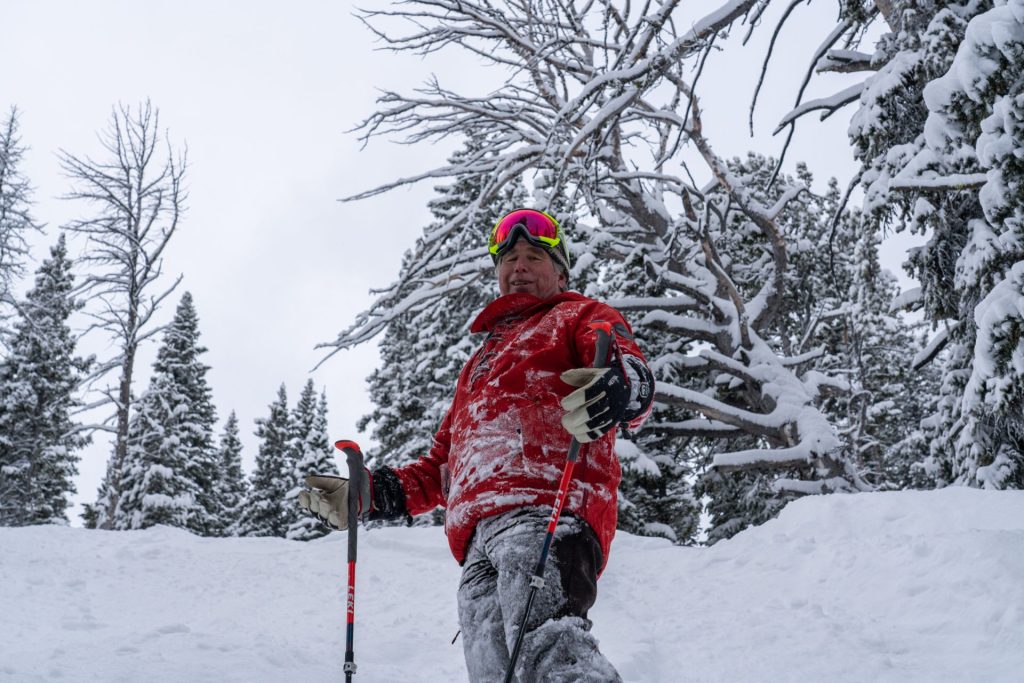
‘The flow state’ is about manifesting your own reality, Egan described, and how you plant a thought in the future and then move yourself to it through emotion, as it is the idea of being attached to your dreams with emotion, not logic.
His reminder to us is that ‘what one can do, another can do too’.
Living a life of thrill, excitement and danger in the mountains has opened Egan’s eyes to seeing the world outside of anxiety, social media, social competitiveness and all the things that limit people from experiencing the present moment and the world’s beauty.
Feature image: Dan Big Sky Action, copyright of Warren Miller Ent.
